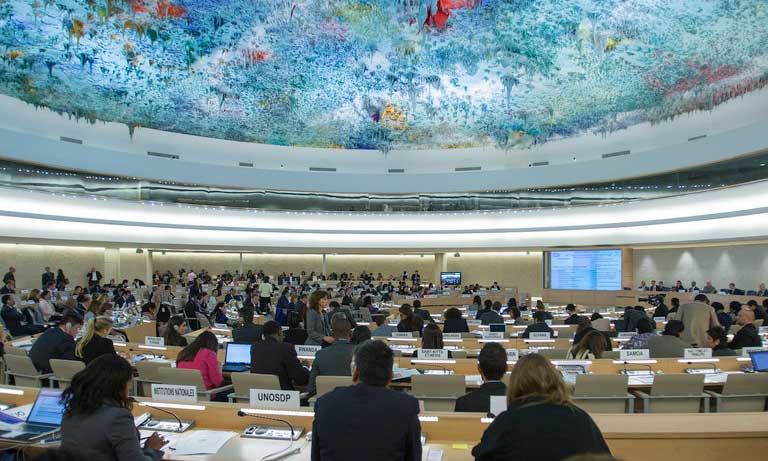W informacji prasowej o postępach w pracach nad aktualizacją Komentarza Ogólnego dot. art. 6 Międzynarodowego Paktu Praw Osobistych i Politycznych podano, że Komitet zakończył drugie czytanie projektu dokumentu. Przyjęto paragrafy 6, 7 i 8 o pozbawieniu życia i rozpoczęto dyskusję nad paragrafem 9 dot. przerywania ciąży. „Ekspertki i eksperci podkreśli konieczność dekryminalizacji aborcji, gdyż penalizacja prowadzi do tego, że zabiegi przeprowadzane są w niebezpiecznych warunkach, co narusza prawa kobiet i dziewcząt do życia. Komitet nie zajął stanowiska w kwestii tego, czy życie płodu jest objęte ochroną w myśl art. 6 i pozostawił decyzję w gestii każdego państwa”. Ich zdaniem, paragraf 9 powinien koncentrować się na prawach kobiet i dziewcząt do życia i zdrowia oraz podkreślać obowiązek państwa do zapewnienia osiągalnego finansowo dostępu do bezpiecznej aborcji.
“Paragraf 9 podejmuje ogromny problem zakresu zdrowia i polityki społecznej, a Komitet powinien raczej wypracować jasne wytyczne na przyszłość niż narzucać stronom Paktu zasady. Doprowadzenie do dekryminalizacji aborcji na całym świecie zajmie lata, a najpewniej dekady”.
Dyskusja nad projektem komentarza ogólnego będzie kontynuowana 10 listopada, a następnie ponownie w marcu i kwietniu 2018 roku.
Treść Paragrafu 9 w projekcie ogólnym, który komentowały państwa i organizacje pozarządowe:
“9. Although States parties may adopt measures designed to regulate terminations of pregnancy, such measures must not result in violation of the right to life of a pregnant woman or her other rights under the Covenant, including the prohibition against cruel, inhuman and degrading treatment or punishment. Thus, any legal restrictions on the ability of women to seek abortion must not, inter alia, jeopardize their lives or subject them to physical or mental pain or suffering which violates article 7. States parties must provide safe access to abortion to protect the life and health of pregnant women, and in situations in which carrying a pregnancy to term would cause the woman substantial pain or suffering, most notably where the pregnancy is the result of rape or incest or when the foetus suffers from fatal impairment. States parties may not regulate pregnancy or abortion in a manner that runs contrary to their duty to ensure that women do not have to undertake unsafe abortions. [For example, they should not take measures such as criminalizing pregnancies by unmarried women14 or applying criminal sanctions against women undergoing abortion or against physicians assisting them in doing so, when taking such measures is expected to significantly increase resort to unsafe abortions]. Nor should States parties introduce humiliating or unreasonably burdensome15 requirements on women seeking to undergo abortion.16 The duty to protect the lives of women against the health risks associated with unsafe abortions requires States parties to ensure access for women and men, and, in particular, adolescents, to information and education about reproductive options,18 and to a wide range of contraceptive methods. States parties must also ensure the availability of adequate prenatal and post-abortion health care for pregnant women.”
Źródła:
http://www.ohchr.org/EN/NewsEvents/Pages/DisplayNews.aspx?NewsID=22339&LangID=E





